
By allcitynews.ng
As 10 years Performance Agreement will expire in 2023, Nigerians are intensifying call for reclaiming of PHCN from invetors following their near-zero performance and inability to turn the electricity sector around as expected.
The call is generating serious appraisals of their activities in the last nine years. While they are smiling to banks, but customers are crying against their epileptic supply.
Nine years of throwing the nation into darkness despite the over N1.7trn sunk into it by FG into the company as intervention fund.
It would be recalled that Federal Government began the journey as a way to improve electricity in the country when it started the move in 2013. That year, the power sector was privatised and the electricity distribution and generation sub-sectors were sold to core investors, while the Federal Government retained the transmission sub-sector.
But the hope by Nigerians to enjoy electricity supply has been dashed since then.
Thus, allcitynews.ng few weeks ago put up part one of this story. Since then it has been generating reactions:
One of the respondents to the first post on this same topic few weeks ago said: “As the 10 years performance agreement will expire by 2023, if no one ask for reversal, we will push for the review and total withdrawal of the licence because all the privatisation agreements have been breached.”
A stakeholder, whose number ends with 5902046 said “Who are the stakeholders intensifying the call for the reversal of privatisation? What is their reason for the call? Will the reversal solve the problem of poor and epileptic power supply in the country? Is privatisation the problem or the politics of implementation.”
And also responding, another stakeholder said: “While it will be politically correct, and people are calling on FG to heed the call for the reversal of the privatisation, a rush into the suggestion will leave us in a more terrible and devastating state of power supply in this country.”
Another respondent whose last phone numbers end with 307 0568 said: “Everything was wrong with the privatisation that was done. It was done to favour cronies that are not technically inclined and not ready to engage competent technical personnel to freely implement the reform. We will remain in blackout with this muddled set up unless genuine efforts are made to revisit the so called privatisation.”
Likewise, another stakeholder whose phone number ends with 234 7252: justifying the call said: “Either anyone called for it or not, by this time next year, the 10 years Performance Agreement will expire. If no one ask for reversal, we will push for the review and total withdrawal of the licence. The agreement concerning the privatisation was not implemented.”
Nine years after privatisation of Power Holding Company of Nigeria (PHCN), every passing day, Nigeria seems farther away from the promise of privatisation, as not only has private monopoly replaced public monopoly of power generation and distribution, it is arguable if power supply during pre-privatisation era was not better than post-privatisation.
As over N1.7 trillion spent so far by Federal Government as intervtion fund to sustain the privatised company not yielding expected turnaround, stakeholders have again called for cancellation of the privatised PHCN.
The fresh attempt to recreate the awareness in minds of Nigerians, and perhaps, hold concerned people and corporate bodies accountable, allcitynews.ng decided to look into the failed promise of turnaround of public utilities.
Point of correction to the wrong notions by some people that organised labour worked against success of privatisation
It should be noted that organised labour before, during and after privatisation did not mince word in warning Nigerians against the consequences. Hitherto has continued to demand for the review of the entire Power Sector privatisation process done by the immediate past leaders of this country.
And remember that organised labour, (TUC, NLC with all their affiliates like NUEE, SSAEAC) have never for once kicked against privatisation. Their singular call then and hitherto is that private investors should set up their firms to operate side by side with PHCN rather than selling off PHCN off.
To NLC, TUC with their affiliates in electricity sector (NUEE & SSAEAC) FG should not sell off PHCN or any public establishments but “let private investors set up their own firms which will compete with that of government,” thereby give Nigerians choice on which to pick and use.
“Selling off or privatisation should not make such private hands to take over already established government’s companies but they should set up their own which we compete with public utilities,” they said.
It should no longer be news that in November, 2013, Federal Government handed over the Power Holding Company of Nigeria (PHCN) to the new investors.
Since that time till today, 18 April 2022, stakeholders, especially trade unionists, civil society organisations and individuals have been calling for review either to cancel or redefine the privatisation guidelines.
All the stakeholders agreed that the processes surrounding the privatisation failed to follow due process.
They admitted that if properly done, privatisation would have opened doors for more jobs, wealth and even make things work for the betterment of all.
They cited Federal Government having no business in doing business as their reason for their support. To them, what is required of government is to create enably environment for businesses to prosper.
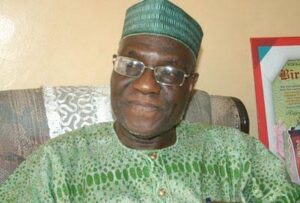
NLC Pioneer President, Comrade Sunmonu
One of the founding fathers and pioneer President of Nigeria Labour Congress (NLC) Comrade Hassan Sunmonu, has backed the call for review of the privatisation of PHCN.
Sunmonu who made this known decried the lack of due process in the whole privatisation exercise. He stressed that one of the governing laws of the privatisation was that10 per cent of their shares were to be given to the workers. That new owners would give its workers the 10 per cent, but that was not followed.
The investors lack expertise
Moreover, Sunmonu said those who bought the companies don’t have the expertise. Most of them thought that if they invest in the power sector, it would generate profits like those importing rice to the country then. They didn’t know it will take a long time before they could have the benefits of making profits.
“Even with the privatisation, the government is still spending public fund on the sector. If not, the whole country would have been in total darkness by now. I’m 100 per cent in support of the government reviewing the privatised power sector. In fact, I want the government to take it back. NEPA and PHCN were doing better work than all the 18 companies that took over from them and if the money the FG has invested in power sector after privatisation had been invested on the PHCH, may be we would have generated over 10,000 megawatts.”
In addition, he said what they would not do to make the public sector efficient and modernised, they will do to the private sector because they have interest in it. They will rather kill the public sector in order for them to buy it at a cheaper rate and then use public money to fund it. Is that what they call privatisation? We know the owners of those privatised power companies.
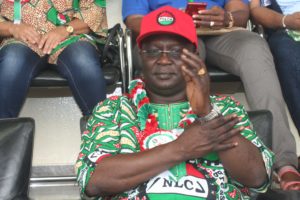
Nigeria Labour Congress
In his statements, the President, Nigeria Labour Congress (NLC) Comrade Ayuba Wabba who has been using every forum to talk on it, agreed that the idea of privatisation is not working because the whole exercises were done in shoddy manner and were handed over to wrong hands who came mainly to milk the people dry with their increase tariffs.
While speaking with Labour Writers Association of Nigeria (LAWAN), Wabba stressed, “But the problem was selling public utilities to wrong hands. The entire privatisation of PHCN and other privatised companies were done in questionable manner and they were handed over to wrong hands who have no genuine reason than making profit for buying over the PHCN.”
Wabba who is always preaching at any given opportunity against the failure of the investors usually lament the state of the company.
“Since the privatisation of electricity distribution, Nigerians are yet to see the fulfillment of the promise of efficient service delivery. Instead, the electricity situation has gone worse with chronic failures by DisCos to supply prepaid meters, exploitation of Nigerians through estimated billings and reluctance to attend to basic complaints.
“We call on the government to reverse the power sector privatisation because it has failed. The privatisation of public utilities has not generally proven to be the correct thing to do in most countries, even developed ones; according to a study released by Public Services International.”
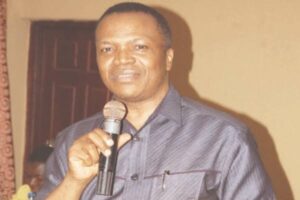
Senior Staff Association of Electricity and Allied Company
Dissatisfied with the performance index of electricity companies in the country, the Senior Staff Association of Electricity and Allied Company (SSAEAC) urged the Federal Government to re-examine the privatisation agreement of the nation’s power sector.
SSAEAC President General, Comrade (Dr) Chris Okonkwo, who made the call at an interactive session with Labour Writers Association of Nigeria (LAWAN) in Lagos, decried what he called the dwindling fortunes of the sector after the private sector took over on Nov. 1, 2013.
Similarly, PG while speaking in April 2019 during in Enugu called for review and sanction of violators on electricity privatisation in the country.
Speaking on the theme: ‘Privatisation and unionism, Nigeria Power Sector Experience’ he told the participants at 4th Triennial Delegates Conference held in Enugu 2019 that the position of the senior staff association was that there should be a review on privatisation because they were given contracts but they did not abide by the contract.
He urged the Federal Government to review the document on power privatisation to see if it had been violated and sanctioned those who had violated it and reward those who had not.
The President General said basically, privatisation was seen as transferring of public facilities to private hands and incidentally those private were business with negative mindset.
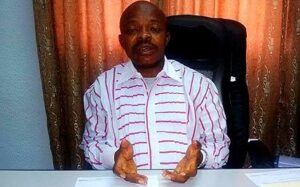
National Union of Electricity Employees
On his part, the General Secretary, National Union of Electricity Employees (NUEE), Comrade Joe Ajaero said what happened in the power sector was not privatisation, but a balkanisation because it was skewed to benefit the government’s cronies.
Ajaero who also is the Deputy President, Nigeria Labour Congress (NLC) while addressing LAWAN, some time in 2021, lamented the sorry state of the whole exercise, saying the process was a flooded with fraud.
He demanded to know why the same government which sold the company
would pump N1.7 trillion in five years into such a privatised sector.
Furthermore Ajaero said “genuine private owners can build and thrive side-by-side public ownership, as we have with NESCO in Jos, which has been generating, transmitting and distributing power since 1929.”
For building power plants and planning to sell them to the private sector for N400 billion, Ajaero described the Federal Government as a contractor.
Wondering while the same government which in 10 years, refused to spend anything to put PHCN to standardised condition and proper position would then turn around to release N1.7 trillion into the same company after privatisation.
“10 years before privatisation, the government did not spend anything to shore up NEPA “that was producing 4,000Mw; inefficient but low tariff.
“However, in five years, after privatisation, the same government has given them N1.7 trillion and at a time was subsidising with N1.7 billion daily.
“This is a sector that is stuck at that same megawatts, but has increased tariff five times.”
He said if PHCN had been allowed to exist with its 4,000Mw production, the about 25 licensed private body could add about 3,000Mw in a sane environment.
“Now PHCN is split into 18 firms, shared among friends, and we are still stuck at 4,000Mw, making Nigerians pay for the greed of a few.”
Furthermore, Ajaero while briefing LAWAN after National Executive Council (NEC) in Lagos insisted in the X-ray, noting that the X-ray would reveal the various hidden clauses directly responsible for the abysmal failure of the reform and the poor working conditions, poor electricity supply and the terrible welfare packages for workers in the Sector. He wondered why FG should be financing/funding projects and the day-to-day running of DISCOS, GENCOS after privatisation.
“The obvious lack of monitoring of DISCOS and GENCOS activities and operations since 2013 was totally condemned by the NEC-in-Session. This, the NEC-in-Session opines is responsible for the high handedness of the management(s) of some of the DISCOS/GENCOS particularly their refusal to allow Union activities and the promotion of other anti-labour tendencies by the companies.

Petroleum and Natural Gas Senior Stafd Association of Nigeria
On his own, the President, Petroleum and Natural Gas Senior Stafd Association of Nigeria (PENGASSAN), Comrade (Engr Festus Osifo) while also addressing Labour Writers Association of Nigeria (LAWAN) on Wednesday 23 March 2022, called for review of the PHCN privatisation said “It is so sad that years after the unbundling of the PHCN, Nigerians are yet to feel the impact of the legions of companies created out of it. Instead, the citizens are subjected to serial grid collapse and total blackout.
“We hereby call on Federal Government to immediately review the privatisation of power generating companies that was carried out in 2013 as the operating companies have become more of burden than solution to the nation.”
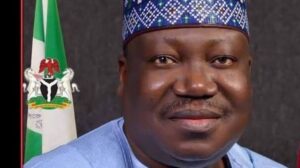
Senate’s President, Senator Lawal
Few months ago, the Senate President, Ahmed Lawan, during the deliberation of a motion on Nigeria’s power sector recovery plan, and the impact of the COVID-19 pandemic, said that power sector privatisation has failed, and called for its review.
Lawal’s comment came in the wake of massive public outcry over the inefficiency of the power sector to provide electricity to Nigerians since it was privatised in November 2013,
Decrying the sorry state of the privatisation, Senate President, Ahmed Lawan, during one of his meetings said: “If we leave them for the next 10 years there would be no power in Nigeria… We gave them our common patrimony and they still come back as DisCos and GenCos to look for money from the public. I think it’s time for Nigeria to consider reversing the privatisation of the power sector or they should just cancel the entire privatisation process completely.
“The privatisation has so far not been successful. We expected efficiency, effectiveness in power supplies but probably on both sides, maybe the purchase agreements were not adhered to on both sides. What is obvious is that the DisCos particularly have no capacity at the moment to supply us power. The GenCos have challenges too. It is not good that we give them money – these are businesses. If there are areas we must intervene as a government it must be seriously justified.”
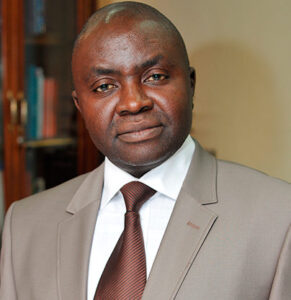
Centre for the Promotion of Private Enterprise
On his own part, the Chief Executive Officer (CEO) Centre for the Promotion of Private Enterprise (CPPE), Dr Muda Yusuf, the purpose of the privatisation has not worked.
Yusuf pointedly, said, power sector reform has been a source of concern to many people, noting that “The power sector reform has not delivered the desired outcomes. The citizens expectations were not met. The entire experience has given privatisation a bad name.
“There are issues of due diligence, technical capacity, financial capacity, political interference, metering issues, estimated and arbitrary billings, payment defaults to the Generating Companies, commercial losses, electricity theft, technical losses, cost reflective tariff and the economics of the private sector investment.”
In his 2022 first quarter economic review, the private sector advocacy and economic think tank CEO admitted that “We also have concerns about the capacity of the Nigerian Bulk Electricity Trading [NBET] Plc to effectively play its role of providing liquidity to support the electricity supply chain.
“Evidently, there are diverse internal and external variables impeding the achievement of the desired outcomes of the power sector reform.”
Furthermore, Yusuf said, “It is thus imperative to have a more holistic approach to the multifarious challenges hampering power delivery. There should be greater emphasis on off grid solutions in order to ensure the decentralization of the power sector.
The current model of high dependence on the national grid has not worked well to serve the economy. The country is too vast for the highly centralized regime of national grid. The continued ownership and control of the transmission component of the power supply chain is also a challenge to grapple with.
We should ensure the rapid promotion of renewable energy solutions through the enactment of policies that will make it more affordable. The current high cost of acquiring renewable energy installation has been a major impediment to the access of this energy solution.
For instance, the cost of solar panels and batteries are very prohibitive. We submit that import duty and taxes on solar equipment, solar batteries and inverters should be scrapped to improve access to renewable energy solutions. The implementation of the energy mix programme of the government needs to be accelerated.
Power sector is critical to the economic development of the country. We are sometimes faced with a conflict between development objectives and commercial objectives.
“I believe government still need to provide generous fiscal incentives for investors in the sector because of the economic development and social impact of an improved power sector performance.”

One Nigeria Empowerment Initiative Inc (ONEII)
On his own part, Comrade Onwumere Israel John Chukwubuikem, the President, One Nigeria Empowerment Initiative Inc (ONEII) noted that the privatisation is yielding good seed.
“I appreciate the PHCN workers for inproving in the power sector through supplying none stop electricity for some time now, especially my area of Ajeromi-Ifelodun LGA Lagos State.”
To Onwumere, Privatation of power sector is working positively, saying “you cannot say that is not favouring Nigerians. It is favouring them , the only problem there is the Bill or Tariff of PHCN to those who don’t have prepaid metres is so high. Therefore they should bring the bills down. And they should also supply metres free of charge as the government promised.”
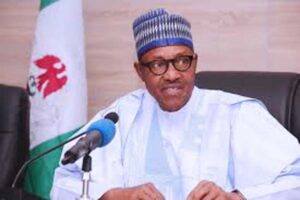
PMB remark
It would be recalled that the Head of State, President Muhammadu Buhari (PMB) in his own assessment, expressed his displeasure over the way and manner the privatisation has turn into as at today.
PMB, 5 January 2022, who apparently could no longer feign ignorance that all is well with the electricity sector said “I Am Angry With State of Nigeria’s Power Sector.”
Expressing his dissatisfaction, Buhari during an interview on Channels Television, 5 January 2022, restated his administration’s commitment to provide infrastructure for Nigerians, including improving on electricity.
“I am not happy because I identify that no country can develop without infrastructure and infrastructure means road, rail and power.”
Premium Times 22 April 2021, carried a report of World Bank saying “Nigeria businesses lose $29 billion annually to poor electricity.
The bank said an average Nigerian consumes four times less energy than their counterparts in a typical lower middle-income country.
The bank’s conclusion was drawn from its Power Sector Recovery Programme factsheet presented during the World Bank’s virtual meeting with journalists Wednesday.
The bank’s Practice Manager, West and Central Africa Energy, Ashish Khanna, who made this known while speaking in a forum, said: “Businesses in Nigeria lose about $29bn annually because of unreliable electricity. Nigerian utilities get paid for only a half of the electricity they receive.”
According to him, for every N10 worth of electricity received by distribution companies, about N2.60 is lost in poor distribution infrastructure and through power theft and another N3.40 is not being paid for by customers.
“Six in 10 of registered customers are not metered, and their electricity bills are not transparent and clear.”
While the senior energy specialist, World Bank, Muhammad Wakil, said: “Nigeria now has the largest number of ‘unelectrified’ people globally and the trend is worsening. Of the electrified, the supply is very unreliable with widespread blackouts.”
He also said Nigeria now has 25 per cent more “unelectrified” people than the second most unelectrified country in the world, the Democratic Republic of Congo (DRC).
Recalled that the Minister of Power, Saleh Mamman, few weeks ago apologised for poor power supply in the country.
Mr Mamman’s apology came weeks after many Nigerians had complained of persistent outages. He said some 17 power plants had operational problems.
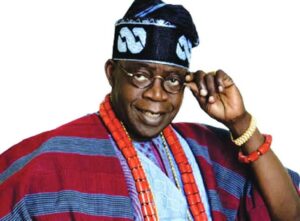
APC leader, Asiwaju Tinubu
The national leader of the All Progressives Congress (APC) Asiwaju Bola Ahmed Tinubu, Saturday, 16 April 2022, during a rally of South West youths of the ruling party, said Nigerians cannot be blamed for being “lazy” while the country faces the problem of electricity supply.
Speaking at the rally, Tinubu claimed that no nation can witness “rapid development” without electricity.
He said the country is blessed with enough gas that can be used to generate electricity and even export to European countries.
Tinubu said: “We cannot continue with excuses on NEPA failure. No! No nation can make rapid development without electricity.
“You cannot give us erratic electricity that is undependable and then blame us again that we are lazy. No!”
Advertise or Publish a Story on allcitynews.ng: Kindly contact us at ojezand@yahoo.com. Have breaking story! Please send such with pictorial evidence to the above email. Thank you.
Disclaimer:
Comments expressed here do not reflect the opinions of allcitynews.ng or any employee thereof. It assumes no responsibility or liability for any errors or omissions in the comments.












More Stories
President Tinubu dissolves NNPC board replaces Mele Kyari, with Bayo Ojulari as NNPC CEO
Why PenCom partnered PenOp to unnveil new pension contribution remittance system, management
Friedrich Ebert Stiftung in partnership with NUPENG, NUEE, NUCFRLANMPE, unveils workers’ charter of demand for just green energy transition, in Lagos, Nigeria